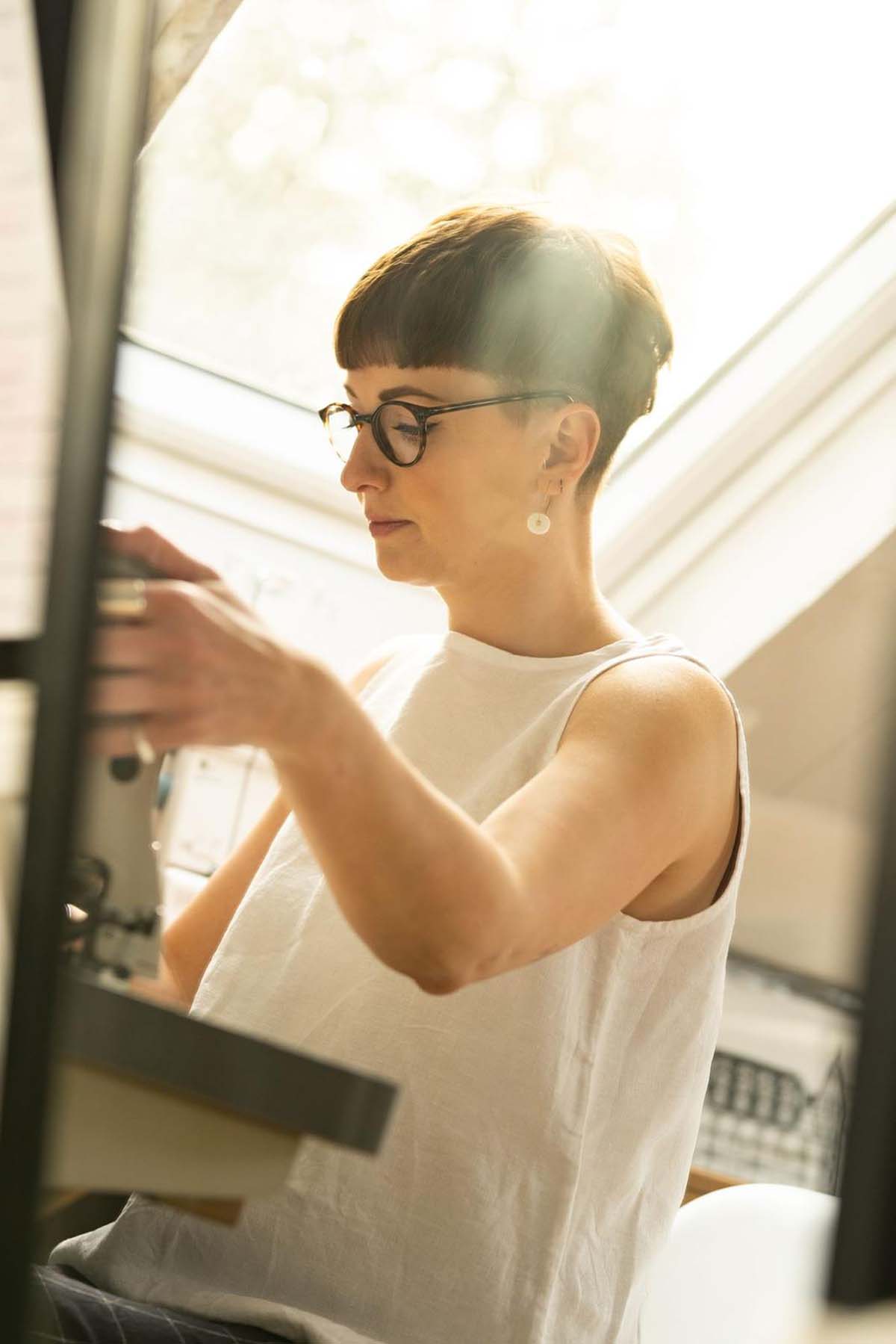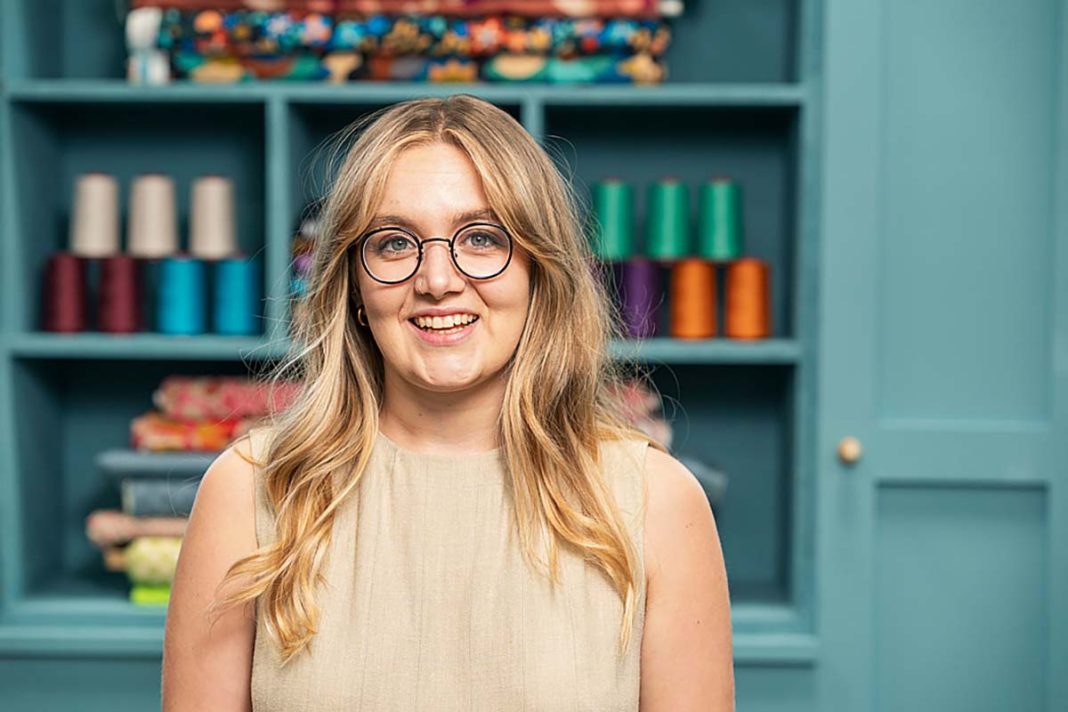Glasgow-based sewing expert Ailsa Lyall shares about her involvement with Fair Fashion Collective this Second Hand September, as well as why she thinks it’s such an exciting time to be working in the Scottish textiles industry
Second Hand September is here, and with it, a host of events around Scotland, including the Fair Fashion Festival in Glasgow.
Organised by the Fair Fashion Collective, an organisation supporting independent businesses and second-hand clothing initiatives in the southside of Glasgow, the event celebrates the Second Hand September campaign launched by Oxfam UK that promotes donating, reusing, re-wearing and restyling your clothes during September and beyond.
View this post on Instagram
From the 31st August fashion-lovers can enjoy shopping with the best of Scottish sustainable fashion design, including names like Second Cashmere, Trakke, LAW Design Studio, VEVAR and more.
This year, the collective has joined up with Ailsa Lyall, a Glasgow-based sewing expert who starred on BBC’s The Great British Sewing Bee, who we recently spoke to about her thoughts on sustainability in Scotland and how we can be more supportive of slow fashion businesses.
What are your thoughts on the need for sustainability in the fashion industry?
I first began questioning the sustainability of the fashion industry while studying Fashion Branding during my undergraduate degree. Influencers were gaining popularity, and large online brands were starting to dominate. It became clear to me how consumers were being manipulated into purchasing cheap, low-quality garments in excessive quantities. Although it would have been easy to get swept into this world by pursuing a fashion marketing role after university, something about it just didn’t sit right with me.

As I learned more about fibres, textiles, and eventually sewing, I developed a deep appreciation for the labour involved in garment creation. This entirely ruined the appeal of fast fashion for me. If a garment’s price seems too good to be true, it probably is – someone or something in the supply chain is paying the cost. I couldn’t knowingly turn a blind eye to that.
You were a finalist on the Great British Sewing Bee. What do you think sewing has taught you about how clothes are made and the importance of slow fashion?
Learning to repair and sew garments has given me such freedom and confidence. I no longer have to rely on fast fashion out of convenience or budget constraints. Instead, I can dress in a way that aligns with my values and expresses my identity, all while minimising my impact as a consumer.
View this post on Instagram
What do you think of the Scottish fashion landscape and do you think we need to do more to support sustainable makers and designers?
I’m incredibly proud to be Scottish and I’m fascinated by our country’s rich textile heritage and traditional dress. In October, I’ll be attending a hand-stitched kilt-making course, and I can’t wait to master this heritage craft. There is still such an appetite for tartan – look at the recent Dior resort collection shown at Drummond Castle! Tartan transcends fast fashion trends and has a resilient history, making it a perfect antidote to today’s fashion cycle.
It’s an exciting time to be creative in Scotland; it feels like a truly supportive environment with collaboration everywhere, as seen in events like the Fair Fashion Festival. I’m based in Glasgow, and though it’s not my hometown, I’ve found an amazing group of friends, all of whom have exciting projects underway. People here are passionate, and if they can’t find the service, event, or art they want, they create it themselves. That attitude is infectious.
View this post on Instagram
Financially, though, it’s challenging, and it doesn’t look like that will change anytime soon. The recent closure of the Creative Scotland Open Fund is a significant blow to the creative sector. I know so many talented individuals already working full-time jobs to fund their art or get novel projects off the ground. This often leads to burnout and poor mental health. Without adequate business support and funding, many worthwhile creative projects that could benefit society are destined for failure.
Sustainable fashion can sometimes feel unattainable, like a luxury only some can afford. But the Fair Fashion Festival makes sustainable fashion accessible to all ages, offering a fun, engaging, and inclusive experience. No one is preaching or insisting you spend hundreds of pounds – it’s about making small, impactful changes and doing what you can. I firmly believe that learning to make and mend garments is key to breaking free of the fast fashion, and I’m passionate about sharing that message.
What’s your involvement with Fair Fashion Collective and what can visitors expect from the fair this September?
As part of the festival, I’ll be hosting a drop-in Scrunchie-Making Workshop at the Rags to Riches Preloved Market at The Glad Cafe on Saturday, September 14th, from 11:00 to 15:00, and I’m also launching my Sunday Social Craft Club with an Upcycling Party on Sunday, September 29th 11:00 – 14:00. Both events are perfect for beginners, especially those who’ve felt the call to take up sewing but don’t quite know where to start. You never know, this could be the start of your journey to the The Great British Sewing Bee!






